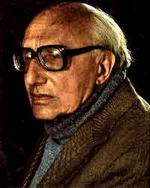 Elias was born on June 22, 1897 in Breslau in Silesia to Hermann and Sophie Elias. His father was a businessman in the textile industry and his mother a homemaker. He fought in the Prussian army during World War I and then completed his Ph.D. under Richard Hönigswald at the Johannesgymnasium in Breslau in 1924, then taught at Heidelberg A Jew, Elias’ career was delayed when he fled Nazi Germany in 1933. After two years in Paris, he fled to England where he remained as a refugee for most of his life. Not until 1954 did he again attain a university position at Leicester. He began an active retirement in 1962.
Elias was born on June 22, 1897 in Breslau in Silesia to Hermann and Sophie Elias. His father was a businessman in the textile industry and his mother a homemaker. He fought in the Prussian army during World War I and then completed his Ph.D. under Richard Hönigswald at the Johannesgymnasium in Breslau in 1924, then taught at Heidelberg A Jew, Elias’ career was delayed when he fled Nazi Germany in 1933. After two years in Paris, he fled to England where he remained as a refugee for most of his life. Not until 1954 did he again attain a university position at Leicester. He began an active retirement in 1962.
Norbert Elias was a European sociologist whose work focused on the relationship between power, behavior, emotion, and knowledge over time. He influenced the Figurational Sociology or Process Sociology research traditions within sociology.
His great book, which marked his emergence as a major figure in sociology, was the republication in paperback of The Civilizing Process (Über den Prozess der Zivilisation, published in 1939 but virtually ignored, republished in the 1960s when it was also translated into English). The first volume traced the historical developments of the European habitus, or “second nature,” the particular individual psychic structures molded by social attitudes. Elias traced how post-medieval European standards applied to violence, sexual behavior, bodily functions, table manners and forms of speech were transformed by increasing thresholds of shame and repugnance, working outward from a nucleus in court etiquette. The internalized “self-restraint” imposed by increasingly complex networks of social connections developed the “psychological” self-perceptions that Freud recognized as the “super-ego.” The second volume of The Civilizing Process looked into the causes of these processes and found them in the increasingly centralized Early Modern state and the increasingly differentiated and interconnected web of society.
Ironically, Elias’ work was published in 1939, the year that the entire structure he described collapsed in a paroxysm of barbarism. When Elias’ work found a larger audience in the 1960s, at first his analysis of the process was misunderstood as an extension of discredited social Darwinism, the idea of upward “progress” and was dismissed by reading it as consecutive history rather than a metaphysic for a social process.
Major Works of Norbert Elias
– Über den Prozess der Zivilisation, 1939
– The Established and the Outsiders, 1965
– The Court Society
– What is Sociology?
– The Loneliness of the Dying
– Involvement and Detachment
– An Essay on Time
– The Civilising Process, 1939
– Quest for Excitement
– Humana Conditio (subtitled “Observations on the Development of Mankind in the Forty Years since the Second World War”)
– The Society of Individuals
– Los der Menschen, 1987
– Studien über den Deutschen
– The Symbol Theory
– Reflections on a Life
– Mozart: Portrait of a Genius

Thanks for your marvelous posting! I actually enjoyed reading it, you can be a great author.I will remember to bookmark your blog and definitely will come back someday. I want to encourage you continue your great work, have a nice afternoon!